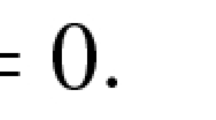Abstract.
We consider allocation mechanisms in economies with a single indivisible good and money. First, we show that there is no strategy-proof and Pareto efficient mechanism on some preference domains which consist of a sufficiently large but finite number of quasi-linear preferences. Second, we show that there is no strategy-proof, Pareto efficient, and equally compensatory mechanism on arbitrary preference domains which consist of more than three quasi-linear preferences.
Similar content being viewed by others
Author information
Authors and Affiliations
Additional information
Received: July 1999/Final version: April 2000
Rights and permissions
About this article
Cite this article
Ohseto, S. Strategy-proof and efficient allocation of an indivisible good on finitely restricted preference domains. Game Theory 29, 365–374 (2000). https://doi.org/10.1007/s001820000046
Issue Date:
DOI: https://doi.org/10.1007/s001820000046




